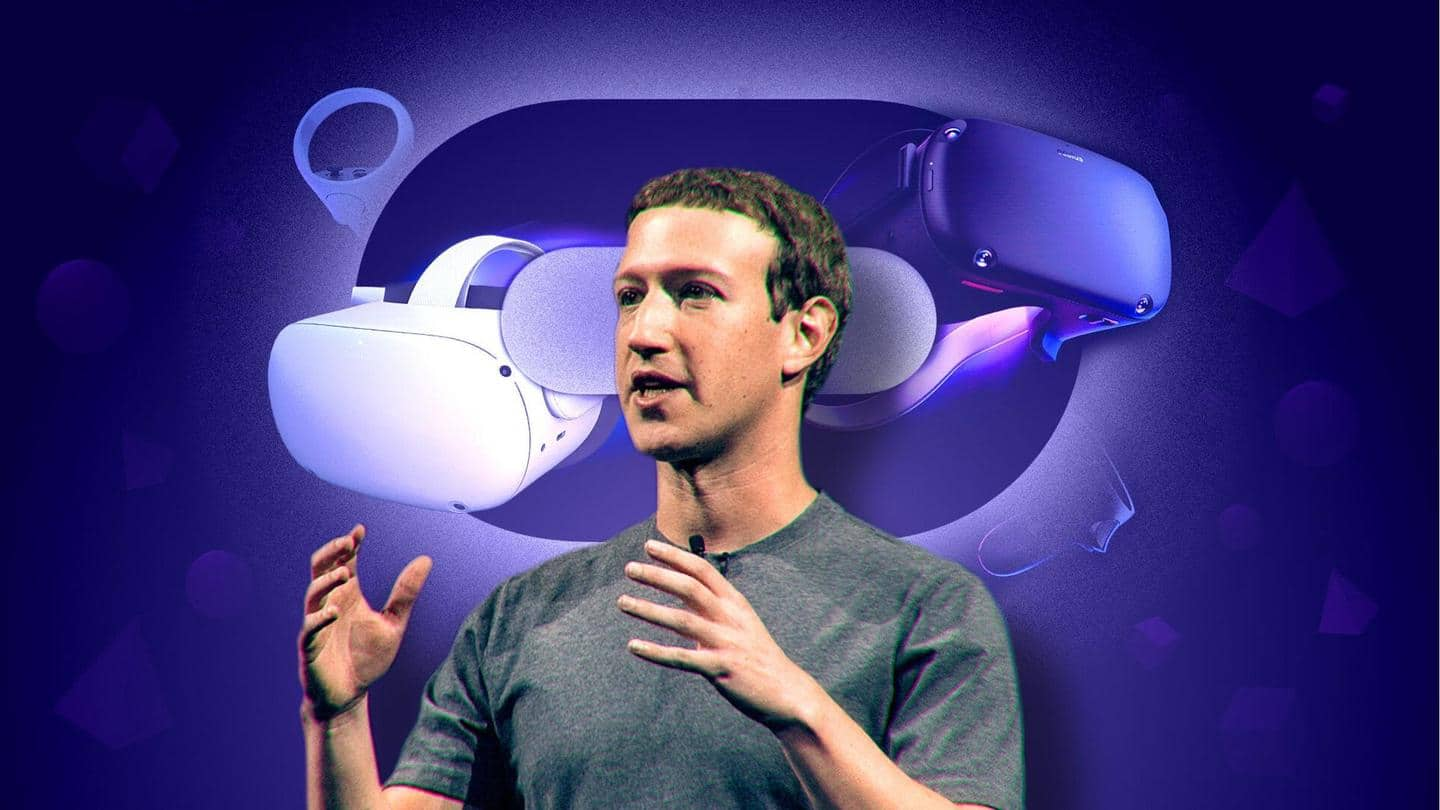
Mark Zuckerberg envisions Facebook transitioning into a metaverse company
What's the story
In a recent virtual conference addressing Facebook employees, the company's 37-year-old founder and CEO Mark Zuckerberg said, "We will effectively transition from people seeing us as primarily being a social media company to being a metaverse company." This could spell the end of privacy and the beginning of supercharged misinformation, more intrusive surveillance, and more rampant harassment than on conventional social media. Here's more.
Definition
Metaverse: A futuristic shared, virtual, alternate reality
The term "metaverse" was coined in Neal Stephenson's sci-fi novel from 1992, Snow Crash. The term refers to a convergence of physical, augmented, and virtual realities in an online space shared with others. It is another form of media you consume, but you're in it.
Zucker-verse
Zuckerberg imagines people participating in virtual 3D concerts, meetings
Zuckerberg's vision for a metaverse is an embodiment of the internet that's accessible across the virtual reality (VR), augmented reality (AR), computers, mobile devices, and gaming consoles. He described it as a "persistent, synchronous environment where we can be together." The CEO imagined people jumping into 3D concerts and sitting together as holograms, all using devices we are already familiar with.
Twitter Post
Zuckerberg says he is thinking about metaverses deeply
Something incredibly bad is about to happen pic.twitter.com/6URGtt7E2a
— District Sentinel (@TheDCSentinel) April 23, 2021
Zucker-worse?
Does society trust Facebook to build an ethical, compliant metaverse?
With the Facebook CEO losing his hunger over this idea, some things are obvious. Yes, a metaverse could be social media's future, but do we want Facebook to build it for us? Facebook's track record with data privacy and security leaves much to be desired, as do its advertising policies and ethics. Not to mention, Facebook also faces class-action lawsuits over several pressing issues.
Unrestricted access
Facebook clearly isn't done peeping inside your mind yet
In a metaverse, everything you do, physically and mentally, would be observed, interpreted, and capitalized upon by Big Tech companies. VR expert Verity McIntosh told the BBC that it won't be about where you click and what you share. It'll be about where you go, how you stand, and how you react to stimuli. Big Tech would have direct access to your subconscious mind.
Personal
Advertising in metaverses could be the next level of creepy
Thinking of how advertisements would be delivered in metaverses is plain scary, as though it isn't creepy enough that my search for sneakers on Amazon becomes an ad on Instagram. Moreover, the distinction between maliciously intentioned content and content for entertainment would become imperceptible.
Decentralization
Video games have been evolving into metaverse-like environments
A recent report by The New York Times noted that open-world video games like Fortnite and Roblox increasingly feature more metaverse-like elements. In fact, Epic Games CEO Tim Sweeney has been vocal about his desire to contribute to a metaverse for a while. Separately, Zuckerberg concurs. His metaverse concept is one that's interoperable, decentralized, open, and run by multiple companies and creators.
Details
Metaverses could explain Facebook's heavy AR, VR investments
While the idea of a collectively governed metaverse sounds like a reasonable proposition, the illusion fades the minute you revisit how Big Tech has reacted to the government's inquest and criticism from users. Meanwhile, Facebook's heavy investments into AR and VR hardware via Facebook Reality Labs and Oculus now seem to make sense and have us rather worried.